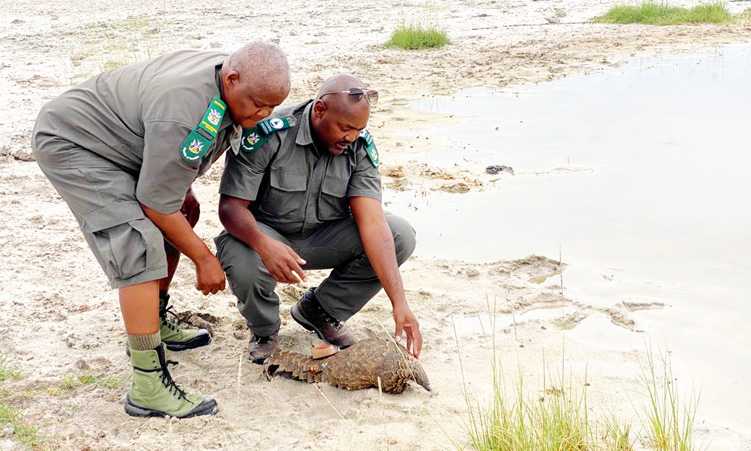The Ministry of Environment, Forestry and Tourism says pangolins are in danger of extinction.
This was revealed by executive director of environment, forestry and tourism Teofilus Nghitila on World Pangolin Day on Saturday.
“While observing the day, the line ministry wishes to remind the public that our pangolins are in danger of extinction. These species continue to be illegally captured and are the most trafficked mammals since 2014,” she said.
Nghitila said the illegal capturing of pangolins is causing the local population to steeply decline, putting them at risk of extinction.
He said 18 skins, 12 live animals, and 146 scales were confiscated in 2023, resulting in 23 registered cases and 38 suspects arrested.
These figures surpass that of elephants and rhinos combined for this period, Nghitila said.
“These cases are predominantly from the northern regions, with the Kavango West region having the most cases registered with six, followed by the Kavango East, Ohangwena, Oshana, and Zambezi regions each registering three cases,” he said.
He said the central regions cumulatively registered four cases, and only one case was registered in the Kunene region.
“Prior to September, there had only been a total of six live animals recovered and 19 skins confiscated from January to August 2023,” he said.
Nghitila said a total of 50 animals have been poached this year, with an additional two foetuses miscarried by live confiscated female pangolins.
He said World Pangolin Day aims to spread awareness of the plight of pangolins, their significance and the threat against them.
“We should use this day to mobilise each other as Namibians and reject illicit activities related to pangolin poaching,” he said.
The ministry said the main driver of pangolin trafficking is Asian medicine markets.
Other major threats within Namibia are electrical fencing under 30cm, drought and climate change, Nghitila said.
He said that pangolins are a protected species in Namibia and the possession or trafficking of the species is punishable by law under the Nature Conservation Ordinance of 1975 and Controlled Wildlife Products and Trade Act of 2008.
“There is a maximum sentence of up to 25 years’ imprisonment and a N$25 000 000 fine. To date the heaviest sentence was nine years’ direct imprisonment, and the heaviest fine was N$800 000 for the trafficking of a pangolin or its parts,” Nghitila said.
The ministry requested the public to report any suspected wildlife crime by sending an SMS to 55555, or visiting the nearest police station.
Stay informed with The Namibian – your source for credible journalism. Get in-depth reporting and opinions for
only N$85 a month. Invest in journalism, invest in democracy –
Subscribe Now!






